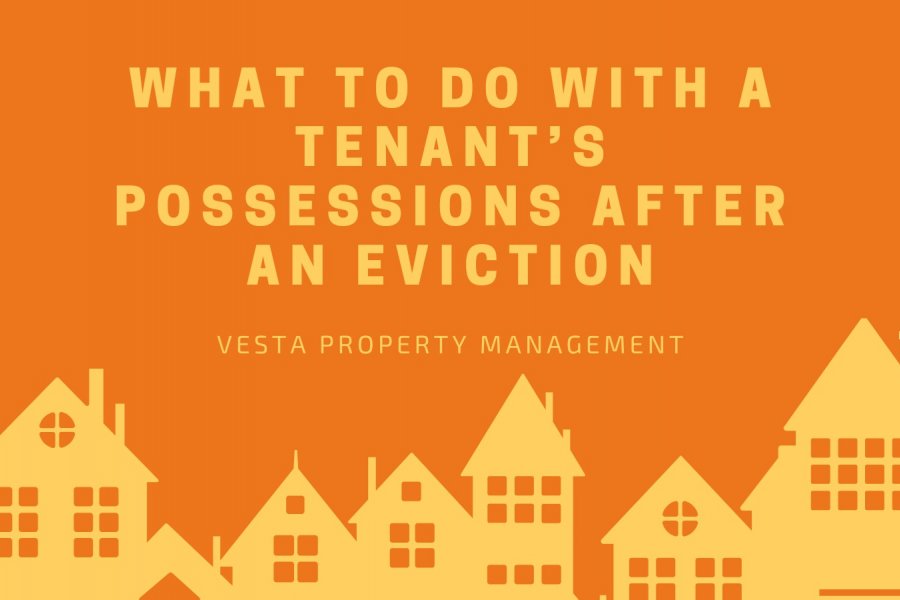
Have you ever faced the dilemma of what to do with a tenant’s belongings after an eviction? As a landlord, navigating this situation can be challenging and stressful. Left-behind possessions create logistical headaches and raise legal and ethical questions.
How do you handle these items while protecting your property and staying compliant with local laws? In this article, we’ll provide a step-by-step guide to managing tenant possessions responsibly, ensuring a smooth process that respects your rights as a landlord and reduces potential conflicts.
Let’s simplify this tricky task together!
Understanding Why the Eviction Happened
The reasons behind an eviction can affect how a landlord is required to handle a tenant's belongings. Was the eviction due to unpaid rent, lease violations, or illegal activities? Each situation may come with different legal requirements.
For instance, some states allow landlords to sell abandoned items to cover unpaid rent, while others strictly regulate how such belongings should be handled. Familiarize yourself with the specific laws in your area to ensure you’re operating within legal boundaries.
Consulting with local law enforcement officers or an attorney during the eviction process can provide additional clarity and guidance.
Allowing Tenants a Chance to Retrieve Their Belongings
Offering tenants an opportunity to reclaim their possessions is a good practice and often a legal requirement. This step helps avoid disputes and demonstrates fairness.
Set a Clear Time Frame
Inform the tenant, in writing, of the time they have to retrieve their belongings. A common window is between 7 to 10 days, depending on local laws. Include specific dates, times, and any procedures they must follow to collect their items.

Secure Their Possessions
During this holding period, keep the tenant’s belongings in a secure location, such as a locked room or storage unit. It’s essential to ensure items remain undamaged while they are under your care. In most cases, tenants bear the cost of storage or transportation beyond the initial period.
Securely Storing and Disposing of Items
Proper storage and clear communication are key to managing a tenant's abandoned possessions. Here’s how to handle it responsibly:
Document and Notify
Before storing the items, create a detailed inventory of everything left behind. Include descriptions and conditions of the items, as this record can be valuable in the case of disputes. Notify the tenant in writing, specifying:
- The location where their belongings are stored.
- How they can retrieve their items.
- Any associated costs, such as storage fees, beyond the free holding period.
Disposal Procedures
If the tenant does not claim their possessions within the specified time, you may need to dispose of them. Local laws will dictate whether you can:
- Donate the items to charity.
- Dispose of them as waste.
- Sell them at a public auction.
Keep thorough records of any sales, donations, or disposals, as these may be needed to address future inquiries or disputes.

Step-by-Step Guide for Handling Tenant Belongings
Here’s a simple, step-by-step process to handle a tenant’s possessions after eviction:
-
Remove Trash and Perishables: Begin by clearing out any obvious trash, expired food, or other perishable items. This helps maintain the property’s condition and avoids health hazards.
-
Sort and Inventory: Carefully go through the remaining items. Organize them, and create an inventory with descriptions and the condition of each item. Photos or videos can serve as additional documentation.
-
Store Items Safely: Move the belongings to a secure location, such as a storage unit or locked room. Ensure the items are protected from damage, theft, or weather exposure.
-
Send a Written Notice: Notify the former tenant, providing details about the storage location, retrieval process, and timeline. Be clear about the deadline for claiming the items and any costs they may incur after the free storage period.
-
Dispose of Unclaimed Items: If the tenant fails to retrieve their belongings within the allowed time, follow local laws for disposal. This may include holding a public auction or donating items. Always retain records of these actions to demonstrate compliance.
-
Recover Costs: If you sell any items, use the proceeds to cover storage costs or unpaid rent. Be transparent about these transactions, and maintain documentation for your records.
Professional Help for Challenging Situations
Managing tenant evictions and their aftermath can be stressful, particularly when belongings are involved. Partnering with a property management company can help streamline the process and ensure all actions are compliant with the law.

Why Choose a Property Management Team?
Experienced property management companies handle evictions, storage, and disposal of tenant belongings efficiently and lawfully. They offer services such as:
- Coordinating with legal advisors.
- Documenting and inventorying possessions.
- Managing communication with former tenants.
For landlords who find these situations overwhelming, this professional support can save time, reduce stress, and prevent potential legal complications. Property management companies may also be able to resolve the issue of holdover tenants before reaching the eviction stage.
Bottom Line
Handling a tenant’s belongings after an eviction can feel overwhelming, but following clear steps and staying within legal guidelines makes the process manageable. From offering tenants a fair chance to retrieve their items to securely storing and responsibly disposing of unclaimed belongings, each step reflects your professionalism and respect for the law.
If you’d rather not tackle these challenges on your own, consider partnering with Vesta Property Management. Our team of experts can handle everything from evictions to property maintenance, saving you time, stress, and legal headaches.
Let Vesta Property Management simplify your landlord experience and keep your properties running smoothly!